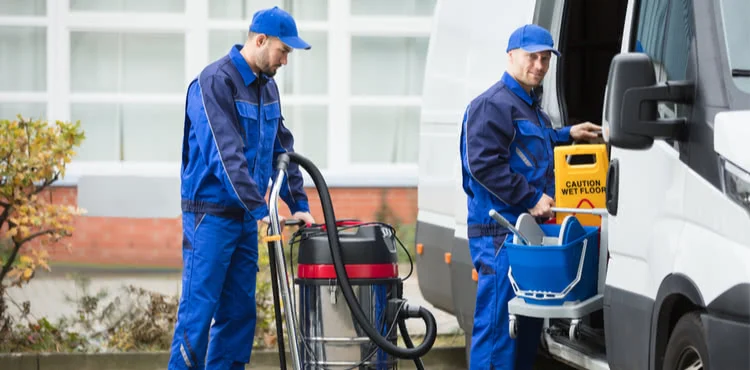Starting a construction business involves laying a solid foundation for success. Proper licenses are like building blocks, essential for its stability and legality. They demonstrate your credibility and ensure compliance with regulations. Without them, your business risks facing penalties or even shutdowns, hindering growth and reputation.
Licenses signify trustworthiness to clients and authorities, boosting confidence in your services. They also protect your business and clients by upholding safety standards. Obtaining licenses isn’t just a legal formality; it’s a commitment to professionalism and accountability. In the competitive construction industry, having the right licenses sets you apart, opening doors to lucrative opportunities and partnerships.
Table of Contents
Understanding Legal Requirements
Determining the appropriate legal structure for your business is critical. Whether you opt for a sole proprietorship, partnership, limited liability company (LLC), or corporation, each structure carries its own set of legal implications, such as taxation, liability, and management structure. Consulting with legal experts or business advisors can help navigate this decision-making process to ensure alignment with your business goals and risk tolerance.
Moreover, delving into local, state, and federal regulations is imperative. Construction businesses are subject to an array of laws and regulations, ranging from building codes and safety standards to environmental regulations and labor laws. Each jurisdiction may have its own specific requirements, making it essential to conduct thorough research or seek professional guidance to ensure compliance. Failure to adhere to these regulations can result in costly fines, delays, or even legal consequences that may jeopardize the viability of your business.
Furthermore, understanding legal requirements not only mitigates risks but also cultivates trust and credibility within the industry. Clients, investors, and partners are more likely to engage with businesses that demonstrate a commitment to ethical and lawful practices. By prioritizing compliance from the outset, construction entrepreneurs can establish a solid reputation for reliability and professionalism, setting the stage for sustainable growth and long-term success in a competitive market.
General Business Licenses
General business licenses are foundational permits required to operate any business legally within a specific jurisdiction. These licenses are typically issued by local or municipal authorities and serve as a form of registration for the business entity. Obtaining a general business license involves fulfilling basic requirements set by the governing body, such as paying a fee, completing an application, and providing essential information about the business, such as its name, address, and ownership structure.
The purpose of a general business license is to ensure that businesses operate within the confines of the law and contribute to the local economy. It also helps authorities track businesses for tax purposes and regulate commercial activities effectively. While the specific requirements for obtaining a general business license may vary depending on the location and type of business, it is a fundamental step for entrepreneurs looking to start a construction business or any other venture.
In addition to a general business license, construction businesses may also need to obtain industry-specific licenses or permits, such as contractor licenses or building permits, depending on the nature of their operations. However, securing a general business license is typically the first step in the process of establishing legal legitimacy.
Construction-Specific Licenses
Construction-specific licenses are specialized permits required for individuals or businesses engaged in construction-related activities. These licenses are distinct from general business licenses and are typically issued by regulatory agencies at the local, state, or federal level. The specific types of construction licenses needed may vary depending on factors such as the type of construction work being performed, the location of the project, and the size and scope of the business.
Common examples of construction-specific licenses include contractor licenses, which are necessary for individuals or companies that oversee construction projects and hire subcontractors. These licenses often require passing examinations, demonstrating experience or education in the field, and providing proof of insurance and bonding. Additionally, trades such as plumbing, electrical work, and HVAC (heating, ventilation, and air conditioning) typically require separate licenses due to the specialized nature of these services.
State and Municipal Permits
State and municipal permits are essential approvals required for construction projects to proceed legally within a specific jurisdiction. These permits are distinct from general business licenses and construction-specific licenses, focusing specifically on the approval of construction activities at the local and state levels. State and municipal permits encompass various types, including building permits, zoning permits, and environmental permits, each serving a specific purpose in regulating construction activities.
Building permits are among the most common state and municipal permits required for construction projects. These permits authorize the construction, renovation, or alteration of structures and ensure compliance with building codes, safety standards, and zoning regulations. Building permits may cover various aspects of construction, including structural integrity, electrical systems, plumbing, and accessibility features.
Insurance Requirements
Insurance requirements are crucial considerations for construction businesses to protect against potential risks and liabilities associated with their operations.
- General Liability Insurance: This insurance provides coverage for bodily injury, property damage, and personal injury claims arising from construction activities. It protects construction businesses from financial losses resulting from lawsuits or liability claims filed by third parties.
- Workers’ Compensation Insurance: Workers’ compensation insurance is mandatory in most jurisdictions and provides coverage for medical expenses, lost wages, and disability benefits for employees who are injured or become ill on the job. It helps ensure that workers receive compensation for work-related injuries or illnesses while protecting employers from costly lawsuits.
- Commercial Auto Insurance: Construction businesses that own or operate vehicles as part of their operations need commercial auto insurance to cover liability and property damage in the event of accidents or collisions involving company vehicles.
- Contractor’s Equipment Insurance: This insurance covers damage or loss of construction equipment, tools, and machinery used in construction projects. It helps protect construction businesses from financial losses resulting from theft, vandalism, or accidental damage to equipment.
- Professional Liability Insurance: Also known as errors and omissions insurance, professional liability insurance provides coverage for claims alleging negligence, errors, or omissions in professional services provided by construction professionals, such as architects, engineers, or consultants.
- Builder’s Risk Insurance: Builder’s risk insurance covers property damage or loss during the construction process, including damage to materials, equipment, and structures caused by events such as fire, theft, vandalism, or severe weather.
- Umbrella Insurance: Umbrella insurance provides additional liability coverage beyond the limits of primary insurance policies, offering an extra layer of protection against catastrophic losses or large liability claims.
Steps to Obtain Licenses and Permits
Obtaining licenses and permits for a construction business involves several important steps to ensure legal compliance and smooth operations.
- Research Requirements: Start by researching the specific licenses and permits required for your construction business at the local, state, and federal levels. Identify the regulatory agencies responsible for issuing these licenses and permits and familiarize yourself with their application processes, fees, and deadlines.
- Create a Checklist: Develop a checklist of all the licenses and permits needed for your construction business based on your research. This may include general business licenses, construction-specific licenses, state and municipal permits, and any industry-specific certifications required for your trade or specialty.
- Gather Necessary Documentation: Gather all the necessary documentation required for each license and permit application. This may include proof of identity, business formation documents, insurance certificates, professional certifications, bonding information, and any other supporting documentation requested by regulatory agencies.
- Complete Applications: Fill out the application forms for each license and permit accurately and completely. Pay close attention to any instructions or requirements provided by the issuing authority and ensure that all information provided is truthful and up-to-date.
- Submit Applications: Submit the completed license and permit applications to the appropriate regulatory agencies according to their specified submission methods and deadlines. Some applications may be submitted online, while others may require in-person submission or mailing.
- Follow Up: After submitting your applications, follow up with the regulatory agencies to ensure that they have received your materials and to inquire about the status of your applications. Be prepared to provide any additional information or documentation requested by the agencies to expedite the review process.
- Pay Fees: Pay any required application fees, processing fees, or licensing fees associated with your applications. Keep records of all payments made and retain copies of your applications for your records.
- Await Approval: Once your applications have been submitted, await approval from the regulatory agencies. The processing times for licenses and permits may vary depending on the complexity of the applications and the workload of the issuing authority.
- Obtain Licenses and Permits: Upon approval, you will receive your licenses and permits from the regulatory agencies. Review the terms and conditions of each license and permit carefully and ensure that you understand any ongoing requirements, such as renewal deadlines or compliance obligations.
- Display and Maintain Licenses: Display your licenses and permits prominently at your place of business or construction sites as required by law. Keep your licenses and permits current by renewing them on time and complying with any regulatory updates or changes that may affect your business operations.
Conclusion
Getting the right licenses and permits is super important when starting a construction business. These licenses show you’re following the rules and keeping everything legal. From basic business licenses to specific construction permits, each one helps protect your business and ensures you’re doing things safely and properly.
By doing your homework, filling out applications correctly, and paying attention to deadlines, you can get the licenses you need. Having the right licenses not only makes you look professional but also builds trust with clients and keeps you out of trouble with the law.



